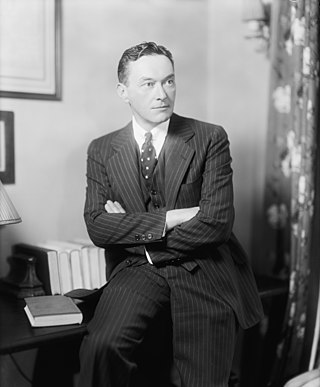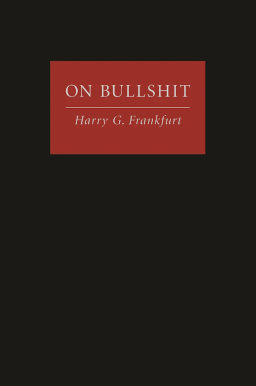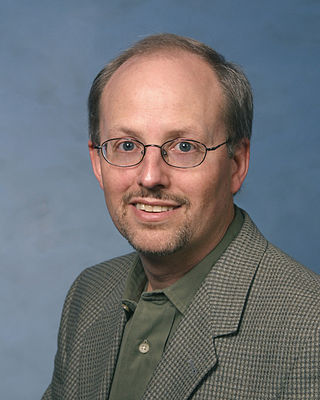Related Research Articles

Friedrich August von Hayek, often referred to by his initials F. A. Hayek, was an Austrian-British economist and political philosopher who made contributions to economics, political philosophy, psychology, intellectual history, and other fields. Hayek shared the 1974 Nobel Memorial Prize in Economic Sciences with Gunnar Myrdal for work on money and economic fluctuations, and the interdependence of economic, social and institutional phenomena. His account of how prices communicate information is widely regarded as an important contribution to economics that led to him receiving the prize.
In economics, a free market is an economic system in which the prices of goods and services are determined by supply and demand expressed by sellers and buyers. Such markets, as modeled, operate without the intervention of government or any other external authority. Proponents of the free market as a normative ideal contrast it with a regulated market, in which a government intervenes in supply and demand by means of various methods such as taxes or regulations. In an idealized free market economy, prices for goods and services are set solely by the bids and offers of the participants.

Sir Karl Raimund Popper was an Austrian-British philosopher, academic and social commentator. One of the 20th century's most influential philosophers of science, Popper is known for his rejection of the classical inductivist views on the scientific method in favour of empirical falsification. According to Popper, a theory in the empirical sciences can never be proven, but it can be falsified, meaning that it can be scrutinised with decisive experiments. Popper was opposed to the classical justificationist account of knowledge, which he replaced with critical rationalism, namely "the first non-justificational philosophy of criticism in the history of philosophy".
Scientism is the opinion that science and the scientific method are the best or only way to render truth about the world and reality.
Islamic economics refers to the knowledge of economics or economic activities and processes in terms of Islamic principles and teachings. Islam has a set of special moral norms and values about individual and social economic behavior. Therefore, it has its own economic system, which is based on its philosophical views and is compatible with the Islamic organization of other aspects of human behavior: social and political systems.

Walter Lippmann was an American writer, reporter, and political commentator. With a career spanning 60 years, he is famous for being among the first to introduce the concept of the Cold War, coining the term "stereotype" in the modern psychological meaning, as well as critiquing media and democracy in his newspaper column and several books, most notably his 1922 Public Opinion.

An intellectual is a person who engages in critical thinking, research, and reflection about the reality of society, and who proposes solutions for the normative problems of society. Coming from the world of culture, either as a creator or as a mediator, the intellectual participates in politics, either to defend a concrete proposition or to denounce an injustice, usually by either rejecting, producing or extending an ideology, and by defending a system of values.
Social influence comprises the ways in which individuals adjust their behavior to meet the demands of a social environment. It takes many forms and can be seen in conformity, socialization, peer pressure, obedience, leadership, persuasion, sales, and marketing. Typically social influence results from a specific action, command, or request, but people also alter their attitudes and behaviors in response to what they perceive others might do or think. In 1958, Harvard psychologist Herbert Kelman identified three broad varieties of social influence.
- Compliance is when people appear to agree with others but actually keep their dissenting opinions private.
- Identification is when people are influenced by someone who is liked and respected, such as a famous celebrity.
- Internalization is when people accept a belief or behavior and agree both publicly and privately.

In the fields of philosophy, the terms obscurantism and obscurationism identify and describe the anti-intellectual practices of deliberately presenting information in an abstruse and imprecise manner that limits further inquiry and understanding of a subject. The two historical and intellectual denotations of obscurantism are: (1) the deliberate restriction of knowledge — opposition to the dissemination of knowledge; and (2) deliberate obscurity — a recondite style of writing characterized by deliberate vagueness.

Cass Robert Sunstein is an American legal scholar known for his work in constitutional law, administrative law, environmental law, and behavioral economics. He is also The New York Times best-selling author of The World According to Star Wars (2016) and Nudge (2008). He was the Administrator of the White House Office of Information and Regulatory Affairs in the Obama administration from 2009 to 2012.
Self-censorship is the act of censoring or classifying one's own discourse. This is done out of fear of, or deference to, the sensibilities or preferences of others and without overt pressure from any specific party or institution of authority. Self-censorship is often practiced by film producers, film directors, publishers, news anchors, journalists, musicians, and other kinds of authors including individuals who use social media.
Discourse ethics refers to a type of argument that attempts to establish normative or ethical truths by examining the presuppositions of discourse. The ethical theory originated with German philosophers Jürgen Habermas and Karl-Otto Apel, and variations have been used by Frank Van Dun and Habermas' student Hans-Hermann Hoppe.

On Bullshit is a 2005 book by American philosopher Harry G. Frankfurt which presents a theory of bullshit that defines the concept and analyzes the applications of bullshit in the context of communication. Frankfurt determines that bullshit is speech intended to persuade without regard for truth. The liar cares about the truth and attempts to hide it; the bullshitter doesn't care if what they say is true or false. Frankfurt's philosophical analysis of bullshit has been analyzed, criticized and adopted by academics since its publication.

Timur Kuran is a Turkish-American economist and political scientist, Professor of Economics and Political Science, and Gorter Family Professor of Islamic Studies at Duke University. His work spans economics, political science, history, and law.
Sissela Bok is a Swedish-born American philosopher and ethicist, the daughter of two Nobel Prize winners: Gunnar Myrdal who won the Economics prize with Friedrich Hayek in 1974, and Alva Myrdal who won the Nobel Peace Prize in 1982. She is considered one of the premier American women moral philosophers of the latter part of the 20th century.
An availability cascade is a self-reinforcing cycle that explains the development of certain kinds of collective beliefs. A novel idea or insight, usually one that seems to explain a complex process in a simple or straightforward manner, gains rapid currency in the popular discourse by its very simplicity and by its apparent insightfulness. Its rising popularity triggers a chain reaction within the social network: individuals adopt the new insight because other people within the network have adopted it, and on its face it seems plausible. The reason for this increased use and popularity of the new idea involves both the availability of the previously obscure term or idea, and the need of individuals using the term or idea to appear to be current with the stated beliefs and ideas of others, regardless of whether they in fact fully believe in the idea that they are expressing. Their need for social acceptance, and the apparent sophistication of the new insight, overwhelm their critical thinking.
Conformity is the act of matching attitudes, beliefs, and behaviors to group norms, politics or being like-minded. Norms are implicit, specific rules, shared by a group of individuals, that guide their interactions with others. People often choose to conform to society rather than to pursue personal desires - because it is often easier to follow the path others have made already, rather than forging a new one. Thus, conformity is sometimes a product of group communication. This tendency to conform occurs in small groups and/or in society as a whole and may result from subtle unconscious influences, or from direct and overt social pressure. Conformity can occur in the presence of others, or when an individual is alone. For example, people tend to follow social norms when eating or when watching television, even if alone.
Nudge theory is a concept in behavioral economics, decision making, behavioral policy, social psychology, consumer behavior, and related behavioral sciences that proposes adaptive designs of the decision environment as ways to influence the behavior and decision-making of groups or individuals. Nudging contrasts with other ways to achieve compliance, such as education, legislation or enforcement.
Preference falsification is the act of misrepresenting a preference under perceived public pressures. It involves the selection of a publicly expressed preference that differs from the underlying privately held preference. People frequently convey to each other preferences that differ from what they would communicate privately under credible cover of anonymity. Pollsters can use techniques such as list experiments to uncover preference falsification.
A purity spiral is a social dynamic in a group or social movement where members engage in competitive victimhood, or in the zealotry or purity of their views. It becomes more beneficial to hold certain views than to not hold them. A feedback mechanism results in people being punished for expressing nuance, doubt or divergence, at the same time as people who put themselves at the extremes are rewarded, resulting in unchecked moral outbidding. This corrodes the group from within.
References
- ↑ Kuran, Timur (1995). Private Truths, Public Lies: The Social Consequences of Preference Falsification. Harvard University Press. pp. 19, 157–243. ISBN 978-0-674-70758-0.
- ↑ Kuran, Timur (1995). Private Truths, Public Lies. Harvard University Press. pp. 19, 177–178. ISBN 9780674707580.
- ↑ Kuran, Timur (1995). Private Truths, Public Lies. Harvard University Press. pp. 76–83. ISBN 9780674707580.
- ↑ Kuran, Timur (1995). Private Truths, Public Lies. Harvard University Press. pp. 119–123. ISBN 9780674707580.
- ↑ Kuran, Timur (1995). Private Truths, Public Lies. Harvard University Press. pp. 247–288. ISBN 9780674707580.
- ↑ Kuran, Timur (1995). Private Truths, Public Lies. Harvard University Press. pp. 176–195. ISBN 9780674707580.
- ↑ Kuran, Timur (1995). Private Truths, Public Lies. Harvard University Press. pp. 196–243. ISBN 9780674707580.
- 1 2 Gagné, Learry (2007). "Non-rational compliance with social norms: sincere and hypocritical". Social Science Information. 46 (3): 457. doi:10.1177/0539018407079726. ISSN 0539-0184. S2CID 144128186.
- ↑ Sunstein, Cass R. (2003). Why Societies Need Dissent. Harvard University Press. p. 20. ISBN 978-0-674-01768-9.
- ↑ Sunstein, Cass R. (2003). Why Societies Need Dissent. Harvard University Press. ISBN 9780674017689.
- ↑ McDonough, Graham P. (2010). "Why dissent is a vital concept in moral education". Journal of Moral Education. 39 (4): 431. doi:10.1080/03057240.2010.521373. ISSN 0305-7240. S2CID 144036733.
- ↑ Kuran, Timur; McCaffery, Edward J. (2004). "Expanding Discrimination Research: Beyond Ethnicity and to the Web*". Social Science Quarterly. 85 (3): 713–730. doi:10.1111/j.0038-4941.2004.00241.x. ISSN 0038-4941.
- ↑ Hayek, F. A. (2020). The Constitution of Liberty: The Definitive Edition. Routledge. pp. 174, 57–198. ISBN 978-0-429-63797-1.
- ↑ Wohlgemuth, Michael (2002-09-01). "Democracy and Opinion Falsification: Towards a New Austrian Political Economy". Constitutional Political Economy. 13 (3): 223–246. doi:10.1023/A:1016156332351. ISSN 1572-9966. S2CID 146608600.
- ↑ Blackford, Russell (2019). The Tyranny of Opinion: Conformity and the Future of Liberalism. Bloomsbury Publishing. p. 92. ISBN 978-1-350-05602-2.
- ↑ Blackford, Russell (2019). The Tyranny of Opinion. Bloomsbury. pp. 7, 9–11, 195–226. ISBN 9781350056022.